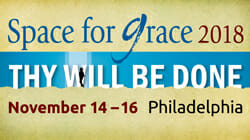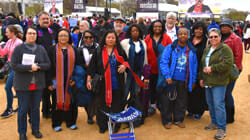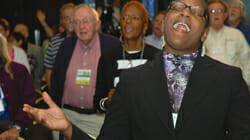It’s safe to murder Negroes in America
By Wayne E. Croft Sr.
In less than 48 hours, when the first full week of July was coming to an end and many had celebrated the 240th birthday of America on July 4, two male African American lives were taken. Philando Castile was shot dead by an officer in St Paul, Minn., late on Wednesday. Earlier 1,100 miles away in Baton Rouge, La., police killed Alton Sterling. As black Americans, we find ourselves yearning for justice, once again, in the midst of two senseless murders.
Yet, it seems that the words spoken by the late Rev. Vernon Johns, who served as pastor of Dexter Avenue Baptist Church, Montgomery, Ala., are just as true now as they were 69 years ago. Every week, in Montgomery, the police were killing blacks, particularly on Saturday nights. On one particular day, a white man, sitting on his porch, saw a black man running down the street. The white man went in his house to get his double-barreled shotgun. When he came out, he pointed his gun at the black man and shot the black man dead. His explanation: “If he was running, he must have done something.”
Everyone in Montgomery knew that a white man had killed a black man and was certain of the murderer. However, local authorities conducted no serious investigation, and the killing was swept under the rug. When Johns heard what happened, he posted on the church-front bulletin board the title for Sunday’s sermon: “It’s Safe to Murder Negroes in Montgomery.”
In the sermon, Johns predicted that violence against Negroes would continue as long as they “let it happen.” Well, today it appears that it’s safe to murder African American males in America. It seems safe not because we are letting it happen and not speaking out. We have been speaking up. We have been speaking out. We have been protesting. We have been shouting, “No justice, no peace.” We have cried, organized, agonized and petitioned. It’s safe to murder African American males because recent history has shown that most, if not all, the police officers that have taken the life of an African American male were not indicted. It is safe to murder black males in America because, chances are, you will not be indicted.
However, the parable Jesus tells in Luke 18:1-8 is where we find hope. Jesus transitions quickly from talking about prayer to telling about a persistent widow who begs and pleads with an unjust judge for such a lengthy time period that the judge finally grants her request. The judge, the text tells us, neither feared God nor respected people. He breaks two commandments in neither loving God nor his neighbor. The widow wants only justice, and her only recourse is to hassle the judge night and day, wearing him down until he relents. He resolves to grant her request neither because he has a change of heart nor because he has decided to live up to the virtues inherent in his office. He grants her request because he wants to get her off his back.
The moral of this parable is not about the judge finally responding and giving the widow what she requested. The moral is in the widow’s persistence for justice during the lengthy period in which the judge would neither respond nor provide indication that he would respond─just like America’s justice system. The widow’s persistence is praised because it is persistence for justice.
The answer is not in taking the lives of law-enforcement officers as retaliation, as did 25-year-old Micah Johnson when he killed five Dallas police officers and wounded seven others. Returning violence for violence must be rejected. As Dr. Martin Luther King Jr. said, “If we do an eye for an eye and a tooth for a tooth, we will be a blind and toothless nation.” No, like this widow, we must be persistent in our fight for justice and do as Jesus said: Pray always and not lose heart. Jesus, in contrast to the unjust judge, says, “Will not God grant justice to his chosen ones who cry to him day and night? Will he delay long in helping them? I tell you, he will quickly grant justice to them.”
We must be persistent in ensuring that it’s unsafe to murder anyone regardless of his or her race, gender, sexual orientation, class or profession. The parable in Luke concludes in verse 8 with the Lord asking a final question: “When the Son of Man comes, will he find faith on earth?” The point of Jesus’ final question is not “Will the Son of Man ever return?” His question has more to do with human endurance than divine faithfulness. It’s not about whether God will come and correct injustices; it’s about whether we’ll continue to pray and hope or whether we will allow injustice to crush our hope. It is imperative that we continue to pray and, like the widow, be persistent until justice rolls down like water and righteousness like an ever-flowing stream. And we must never lose hope.
Beams of heaven as I go,
through the wilderness below,
guide my feet in peaceful ways,
turn my midnights into days.
When in the darkness I would grope,
faith always sees a star of hope,
and soon from all life’s grief and danger
I shall be free someday.
I do not know how long ’twill be,
nor what the future holds for me,
but this I know: if Jesus leads me,
I shall get home someday.1
Wayne E. Croft Sr.
Senior Pastor, St. Paul’s Baptist Church, West Chester, Pa.
Jeremiah A. Wright Associate Professor of Homiletics and Liturgics, Lutheran Theological Seminary, Philadelphia
1 “Beams of Heave as I Go” hymn, Charles Albert Tindley, 1906.






